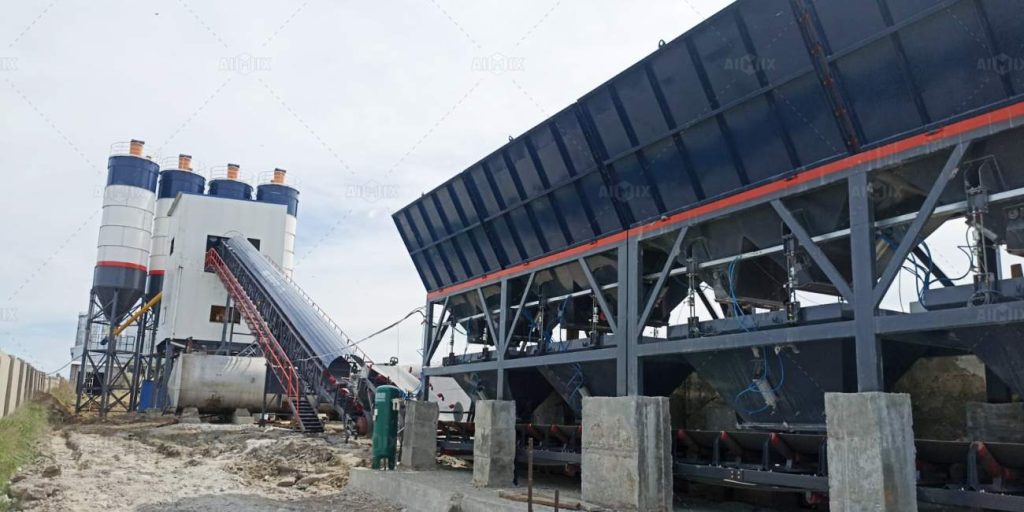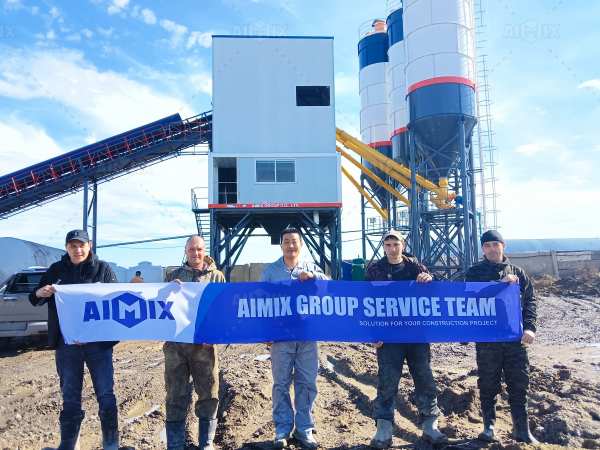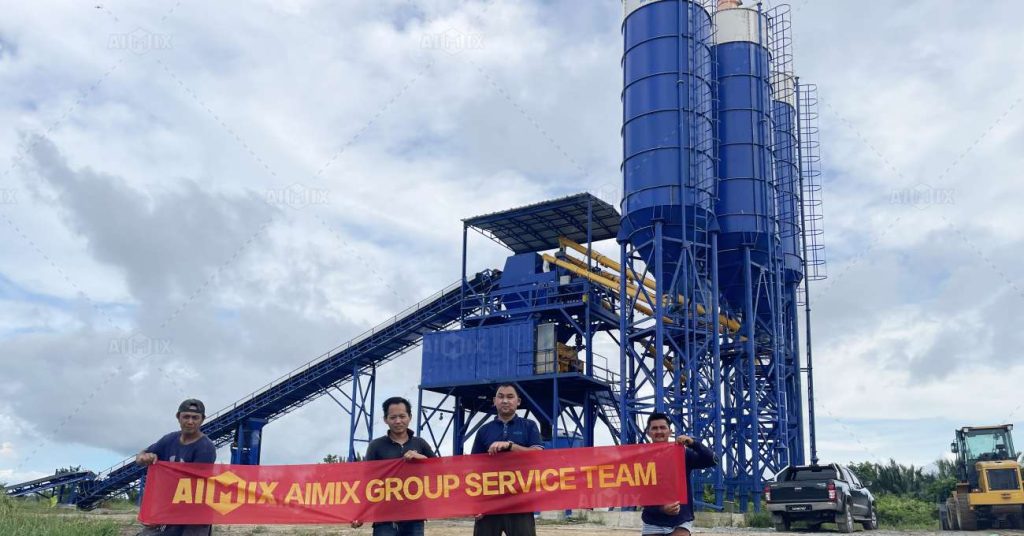The construction industry is undergoing a rapid transformation, driven in part by technological innovations and the evolving demands of modern infrastructure projects. At the heart of these changes are concrete batching plants manufacturers, who are pioneering advancements that enhance productivity, quality, and sustainability in concrete production. From mobile concrete batching plants to stationary batching plants and sophisticated concrete mixing plants, manufacturers are playing a pivotal role in reshaping the industry on a global scale.

The Role of Concrete Batching Plants Manufacturers
Concrete batching plants manufacturers are responsible for designing, producing, and continuously improving the machinery that supplies concrete for construction projects. These manufacturers not only meet the rising demand for efficient concrete production but also drive innovation in response to increasing market competition and environmental regulations. Their efforts directly impact project timelines, cost efficiency, and overall construction quality.
Manufacturers are now offering a wide range of products, including:
- Mobile Concrete Batching Plants: Designed for flexibility and on-site concrete production, these units are ideal for projects in remote or temporary locations.
- Stationary Batching Plants: These plants are favored for large-scale projects due to their high production capacity and consistent quality.
- Concrete Mixing Plants: The core of the concrete production process, these plants integrate advanced mixing technology to ensure optimal blend consistency and strength.
Technological Innovations Driving Change
Automation and Smart Controls
One of the most significant advancements in the concrete batching industry is the integration of automation and smart control systems. Modern batching plants are equipped with computer-based control systems that monitor the mixing process in real time. These systems optimize ingredient proportions, ensuring that every batch meets precise quality standards. Automation not only minimizes human error but also reduces labor costs and increases production speed.
For instance, a mobile concrete batching plant equipped with advanced automation can quickly adapt to changing project needs, providing consistent concrete quality even under challenging field conditions. Similarly, stationary batching plants benefit from automated controls, enabling continuous, high-volume production with minimal downtime.

Sustainability and Energy Efficiency
Sustainability has become a critical focus in the construction sector, prompting concrete batching plants manufacturers to develop eco-friendly solutions. New models of both mobile and stationary plants are designed to reduce energy consumption and minimize emissions. Manufacturers are incorporating energy-efficient motors, renewable energy sources, and waste recycling systems into their designs.
These innovations not only comply with increasingly strict environmental regulations but also offer long-term cost savings. For example, a concrete mixing plant that utilizes energy-efficient technology will have lower operational costs over its lifetime, making it an attractive investment for companies focused on green construction practices.
Digital Integration and Connectivity
The rise of the Internet of Things (IoT) has enabled manufacturers to integrate digital connectivity into concrete batching plants. Real-time data collection and analysis help operators monitor performance, schedule preventive maintenance, and quickly identify any operational issues. This connectivity ensures that both mobile concrete batching plants and stationary batching plants operate at peak efficiency, reducing downtime and enhancing overall productivity.
Digital integration also facilitates remote control and diagnostics, allowing manufacturers to provide timely support and updates. This proactive approach to maintenance extends the lifespan of the equipment and improves the reliability of the concrete supply chain.

Market Trends and Global Impact
Growing Demand in Emerging Markets
Emerging markets around the world are experiencing rapid urbanization and infrastructure development. In these regions, the need for reliable and efficient concrete production is driving the demand for both mobile and stationary batching plants. Concrete batching plants manufacturers are responding by offering scalable solutions that can be tailored to meet local requirements.
For example, in areas where transportation logistics are challenging, mobile concrete batching plants provide a viable solution. Their flexibility allows them to be easily relocated to different job sites, ensuring a continuous supply of concrete without the logistical hassles associated with stationary plants.
Advancements in Material Technology
Manufacturers are also investing in research and development to improve the materials used in concrete batching plants. Innovations in corrosion-resistant materials, high-strength components, and advanced mixers are enhancing the durability and performance of both concrete mixing plants and batching systems. These advancements are crucial for projects in harsh environments where equipment must withstand extreme weather conditions and heavy use.
Competitive Global Landscape
The global competitive landscape is pushing concrete batching plants manufacturers to continually improve their products. International competition has led to increased innovation, better customer support, and more competitive pricing. Companies that invest in cutting-edge technology and maintain high standards of quality are more likely to secure contracts with large construction firms and government projects.
This competitive pressure is beneficial for the industry as a whole, as it drives continuous improvement and ensures that construction companies have access to the best equipment available.
Future Prospects
Looking forward, the role of concrete batching plants manufacturers is set to become even more influential in the construction industry. The convergence of automation, sustainability, and digital technologies will continue to drive innovations that enhance production efficiency and reduce environmental impacts. As global infrastructure demands increase, both mobile and stationary batching plants will play a critical role in meeting these needs.
Manufacturers who can balance technological advancements with cost-effective solutions will be best positioned to shape the future of concrete production. Whether it’s through the development of new concrete mixing plants or the refinement of existing technologies, the focus will remain on delivering high-quality, reliable, and environmentally sustainable products.
Conclusion
Concrete batching plants manufacturers are at the forefront of a technological revolution in the construction industry. Their innovations in mobile concrete batching plants, stationary batching plants, and concrete mixing plants are driving improvements in efficiency, quality, and sustainability. These advancements are not only meeting the current demands of large-scale construction projects but are also paving the way for future growth in emerging markets worldwide.
By embracing automation, digital integration, and eco-friendly practices, these manufacturers are setting new standards for the industry. As the global market continues to evolve, the role of these manufacturers will be pivotal in shaping the future of concrete production and construction infrastructure.